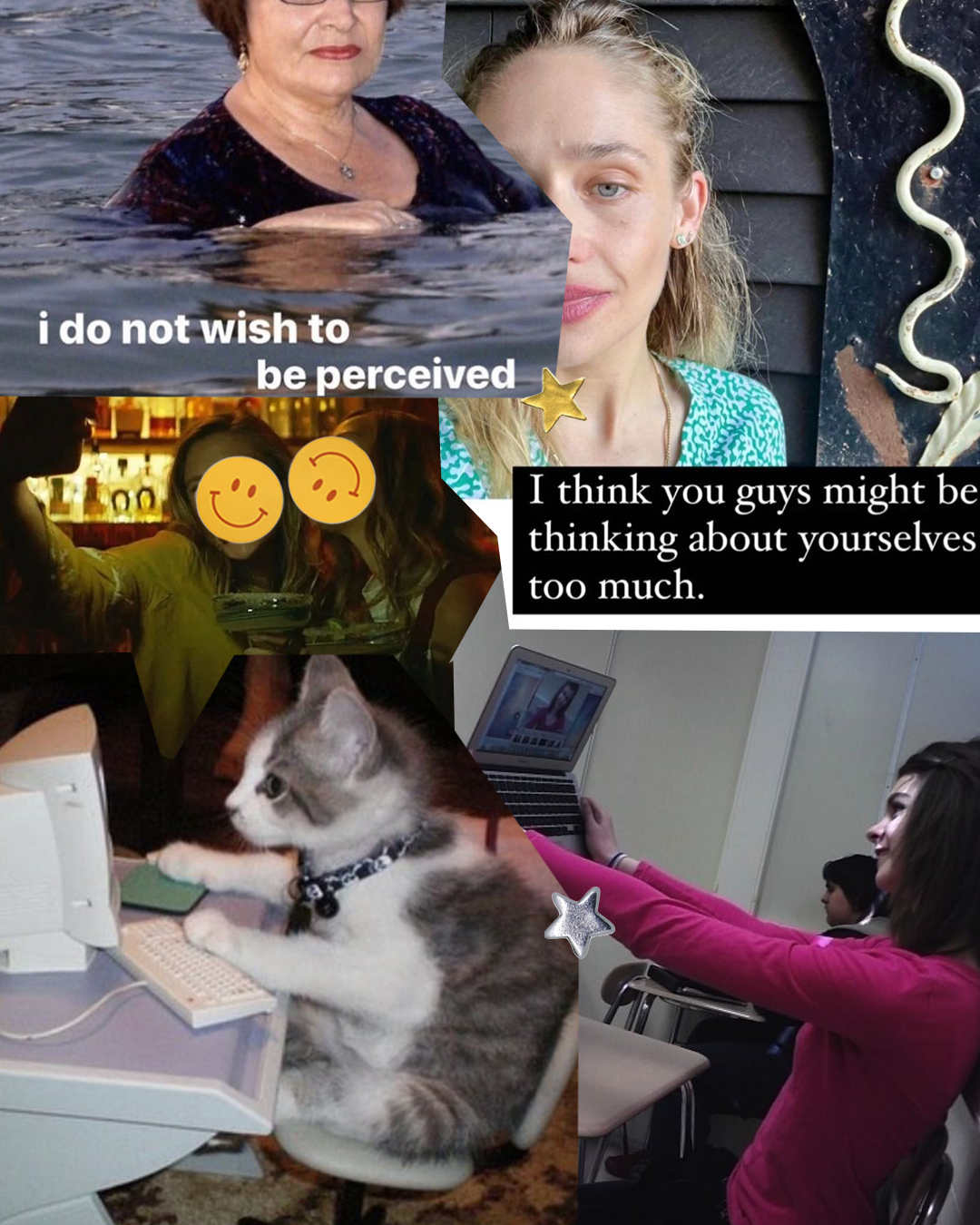Are We All Over Performing Our Lives Online?
Words: Rachael Akhidenor
I was catching up with a friend recently. She had recently returned from a holiday, and casually mentioned how she’d barely posted about it. “All the shots of the glistening waters of Hydra and the street carts in the Marrakech medina… all banked up for weeks following the trip and posted in one hurried and half-hearted dump.”
Two years ago, this would’ve been unthinkable. Most everyday people (read: non-influencers) would have lived for that kind of content. “Do it for the gram,” “Get the shot” and “I want to post something tonight” were part and parcel with the everyday vernacular of millennials and Gen Z-ers like you and me.
The aim of socials was to see and be seen. To perceive and be perceived. Who would have thought this once-titillating experience would eventually bring about such exhaustion and dread? I surveyed a few people I know to see whether the feeling was pervasive. “It feels like more of a chore – even when I know I have good pictures or content to post I can just never bring myself to do it,” said Sarah, aged 30. Indeed, most people I know have a kind of posting ennui. Much of the discourse attributes this to our changing patterns of behaviour. Millennials are “growing up” and craving privacy. Gen Z tend to lurk rather than post. We’re collectively awakening to the psychological cost of performing our lives online.
___STEADY_PAYWALL___
“I just noticed, posting always felt contrived and forced,” Emily, 29, and a new mother tells me. “I would have something to share – like a genuine moment – and I would just find I’d pick at myself. I’d put so much pressure on myself to make things look a certain way, and then I’d take a step back and be like, ‘what is this whole scenario right now?’ It feels so far from what [it] was really supposed to be about – sharing genuine moments and exciting things about your life.”
When social media first crash-landed into our lives, it was full of potential and excitement. Suddenly, we weren’t just living in the physical world. There was a digital one, too. It was a magical place that transformed the mundanity of life – a morning coffee, an evening stroll – into opportunities for connection and dopamine hits.
This kind of exhibitionism was exciting. We were the main stars and the lead actors. Little did we realise we’d shouldered the roles of director, editor, and curator as well. “It just feels like such a chore,” my friend, Evonne, aged 27, tells me. “'I’ve been so busy; there’s so much is happening [in my life]. The last thing I want to do is sit down, go through my photos, feel like I need to create something, and then post it on social media.”
“What once brought dopamine hits and feelings of connection is now often replaced by anxiety and pressure. Each post enlivens the potential for judgment on one hand, and the fear of invisibility on the other.”
Despite our collective understanding that social media is “bad”, the emotional toll of posting is rarely discussed. There is, however, an unseen cost of splitting ourselves across the digital and physical world. Late last year, a UK study of 15,000 adults led by Dr Ruth Plackett (University College London) found that frequent posting on social media was associated with increased mental health problems. Simply viewing social media content didn’t have the same effect.
“Active posting often involves self-presentation and seeking validation which can heighten self-consciousness and vulnerability to feedback,” Dr Plackett tells me. “This constant evaluation can create stress and anxiety, whereas passive viewing might not carry the same personal exposure.” Could our apathy towards posting speak to a growing reluctance to keep up this digital performance? I asked Evonne why she pulled back from posting. “I feel like if I'm posting it’s because I want to show off my life in a certain way, and I don't want it to be like that.”
As Dr Plackett explains, “Curating an online persona requires continuous effort – selecting, editing, and presenting moments that align with an idealised image. This disconnect between the curated self and lived reality can feel inauthentic and emotionally draining.” There’s also been a breakdown in the social media feedback loop. What once brought dopamine hits and feelings of connection is now often replaced by anxiety and pressure. Each post enlivens the potential for judgment on one hand, and the fear of invisibility on the other.
“Spending hours on a reel only for it to flop is infuriating,” publicist Sophie McGrath tells me. “[But for business], posting is non-negotiable. In PR, staying visible online is critical for growth.”
While Sophie is posting less on her personal account, she still feels the pressure to consistently post for her work. “I set calendar reminders morning and night to nudge myself, but whether I actually hit ‘post’ usually depends on my mood and if I feel it’s “good enough” to share.” Of course, there are some who still find joy in posting. My friend, Sam, who’s been posting on TikTok more this year than ever, said “I think I post more freely because it feels so silly and whimsical. For someone who’s in more of an operational role at work, it’s quite nice to kind of have that creative release, especially when I’m creating with my partner. It’s a way to connect and just be silly and goofy.”
For Sam, capturing content doesn’t affect his IRL experience. “I'm usually capturing the content for me – which I would have done anyway.”
For others, however, capturing content changes everything – and it’s something they’re less and less interested. “I find that it very much does take you out of the present,” Emily reflects. “It's a major distraction. I just want to be in the moment.”


